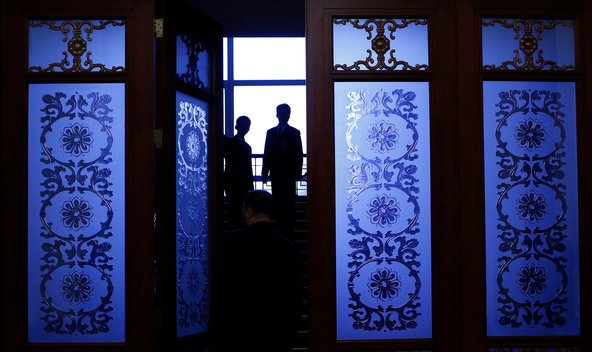Starting earlier this year, Web police units directed the companies, which included joint ventures involving American corporations, to buy and install hardware to log the traffic of hundreds or thousands of computers, block selected Web sites, and connect with local police servers, according to industry executives and official directives obtained by The New York Times. Companies faced the threat of fines and suspended Internet service if they did not comply by prescribed deadlines.
The initiative was one in a range of shadowy tactics authorities deployed in the months leading up to the 18th Party Congress, which is scheduled to end on Wednesday, in an escalating campaign against information deemed threatening to party rule. The effort, while spottily executed, was alarming enough to spur one foreign industry association to lodge a complaint with the government. Several foreign companies quietly resisted the orders, which posed risks to communications and trade secrets that they take pains to secure.
The events surrounding the party congress magnify the constant challenge facing China’s Internet security apparatus, which is to maintain the party’s lock on political power without choking off a wired China from the global economy.
The more intrusive recent measures appear aimed at plugging some of the gaps in China’s nexus of surveillance and censorship, sometimes termed the “great firewall.”
“It goes this way pretty much every time there’s some big political event in Beijing: the DVDs are gone, the prostitutes are gone, and the Internet’s slower,” said David van Meerendonk, an American who operates an information technology company here. “They’re struggling to find a balancing point.”
Over the past couple of weeks, partial blocking has crippled access to Google and other sites, at times completely. It has also disrupted programs that many people here use to circumvent surveillance and reach blocked overseas sites by other means. Some Internet providers have cut service for hours, citing “maintenance.” Democracy activists and foreign journalists have reported increased attacks on their e-mail accounts.
On domestic social networks, already vigorously policed, censors have fine-tuned their craft. Sina Weibo, the nation’s most popular microblogging site, has experimented with “semi-censorship,”as one blog termed it, filtering search results for once-unsearchable terms. One semi-censored term was the Chinese shorthand for the party congress itself: shiba da. Blocking it had prompted some of China’s more playful microbloggers to resort to a similar-sounding English substitute: “Sparta.”
Hu Jintao, China’s departing leader, in his report on the opening day of the congress last Thursday, gave no sign of any relaxation in controls. “We should strengthen social management of the Internet and promote standardized and orderly network operation,” he said.
The police and other agencies rely on legions of local censors, automated filtering and strict regulation of Internet service providers.
GreatFire.org, a Chinese-based blog that tracks government filtering, found in tests this month that Google e-mail was being partly blocked, and that blocking intensified after the congress began. One possible explanation for the strategy was that “authorities are nervous of fully blocking Gmail,” it said. “The government may be scared of a backlash from the urban, educated and young people who tend to use Gmail, not to mention the businesses that rely on it.”
In late summer, the police stepped up jamming on circumvention software, according to two party insiders with Chinese security ties. Students who use Freegate, free software backed by the banned spiritual movement Falun Gong, said that as early as August they experienced unusually frequent disruptions.
China says its online security policies are needed to fight pervasive fraud, cyberattacks, pornography and rumormongering.
Adam Century contributed reporting.
Article source: http://www.nytimes.com/2012/11/14/world/asia/china-pressures-businesses-to-help-censor-web.html?partner=rss&emc=rss
